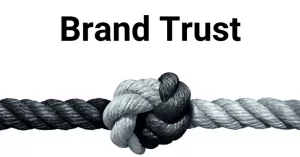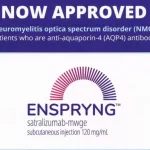Ever wondered what “Medicare certified” really means and why it matters for you or a loved one? In a nutshell, a Medicare‑certified provider has met the federal Conditions of Participation, so the services they deliver are reimbursable by Medicare and meet specific quality‑and‑safety standards.
Bottom line: if a doctor, home‑health agency, skilled‑nursing facility, or hospice isn’t Medicare certified, Medicare won’t foot the bill – you’ll either pay out‑of‑pocket or look for another provider. Let’s dive in and clear up the confusion, step by step.
What It Means
The Centers for Medicare & Medicaid Services (CMS) define “Medicare certified” as a provider that has successfully completed the enrollment process, passed a survey, and signed a Medicare Provider Agreement. In plain English, it means the government has given a thumbs‑up that the provider complies with federal health‑care rules, from staffing ratios to infection‑control protocols.
These rules are codified in the Conditions of Participation (CoPs) found in the Code of Federal Regulations – for example, 42 CFR § 418.50 for hospices and 42 CFR § 483.10 for hospitals.according to CMS. When a provider meets those CoPs, they earn the right to bill Medicare for the services they render.
Why does this matter to you? Medicare coverage, eligibility, and services all hinge on that certification. Without it, you could face surprise bills, limited care options, and a lot of unnecessary stress.
How to Verify
First thing’s first: verify before you schedule an appointment. The quickest way is to use the CMS Provider Enrollment System (PEST) search tool – just type the provider’s name and you’ll see their certification status, provider number, and the type of Medicare services they’re authorized to deliver.
Second, ask to see the certification number on the spot. Legitimate providers proudly display the “Medicare‑Certified” logo on their office signage, website, or brochure, along with a provider agreement number. If the number is missing or the logo looks like a clip‑art copy, pause and double‑check.
Red flags include vague language such as “we accept Medicare” without any proof, or a claim that the provider is “approved” but with no reference to a CMS number. In those cases, you could be looking at an out‑of‑network provider that will leave you with a hefty bill.
Provider Types
Home Health Agencies (HHAs)
Home health agencies bring skilled nursing, physical therapy, occupational therapy, and medical social services straight to a patient’s door. To be Medicare certified, a HHA must:
- Provide skilled nursing and therapeutic services.
- Have physician and registered nurse oversight.
- Maintain complete clinical records for each patient.
- Hold a state license or approval that meets federal standards.
- Operate under a documented budget and safety plan.
These requirements are spelled out on the CMS Home Health Agencies page, which also explains the survey process that verifies compliance.according to CMS.
Skilled Nursing Facilities (SNFs)
SNFs are the next stop after a hospital stay when a patient needs intensive rehab but not full hospital care. Medicare Part A will cover a short‑term SNF stay if:
- The patient had a qualifying three‑day inpatient hospital stay.
- The SNF admission occurs within 30 days of hospital discharge.
- The care is ordered by a physician and provided by Medicare‑certified staff.
This “benefit period” can last up to 100 days (the first 20 days are fully covered, then a coinsurance applies). Once the 60‑day gap without inpatient or SNF care occurs, the benefit period ends, and a new one can start after another qualifying hospital stay.
Hospice Agencies
Hospice care focuses on comfort rather than cure for patients with a life expectancy of six months or less. To bill Medicare, a hospice must be a separate, Medicare‑certified entity with its own provider agreement. The hospice physician must certify the terminal diagnosis, and the patient (or their representative) must sign an election form opting for palliative care over curative treatment.
All hospice services – from pain management to counseling – are covered under Original Medicare when delivered by a certified agency. According to Medicare Interactive, the “Medicare‑certified” label guarantees that the agency meets quality standards and that you won’t receive surprise bills for hospice services.
Durable Medical Equipment (DME) Suppliers
When you need a wheelchair, oxygen tank, or other equipment, the supplier must be Medicare certified for the item to be covered under Part B. The certification ensures the supplier follows safety standards, provides proper training, and bills correctly.
Coverage Tied to Certification
Medicare’s payment structure is simple in theory: if the provider is certified, Medicare pays; if not, you pay.
- Part A covers inpatient hospital care, SNF stays, hospice, and certain home health services—but only when the provider holds a certification.
- Part B covers outpatient services, physician visits, and DME from certified suppliers.
- Part C (Medicare Advantage) must offer at least the same benefits as Parts A and B, but the underlying certification requirement remains unchanged.
What Medicare does not cover? Long‑term custodial care in a non‑certified facility, services from providers without certification, and any “extra” amenities that aren’t medically necessary.
Benefits of Choosing Certified Providers
Quality & Safety Assurance
Studies from CMS consistently show that certified facilities have lower infection rates and higher patient‑satisfaction scores. The certification process forces providers to adopt evidence‑based protocols, regular staff training, and robust quality‑improvement programs.
Financial Protection
Choosing a Medicare‑certified provider means you won’t get hit with surprise bills. Medicare covers the agreed‑upon amount, and the provider handles the paperwork. You keep your budget intact and can focus on recovery instead of negotiating fees.
Care Coordination
Certified providers are required to share electronic health records (EHRs) with Medicare’s data system, which streamlines communication between doctors, therapists, and pharmacists. This reduces duplication of tests and speeds up decision‑making.
Peace of Mind
Knowing that a provider has passed a rigorous federal survey gives you confidence that you’re in capable hands. If something goes wrong, you have a clear path to file a complaint with CMS, which can investigate and enforce corrective actions.
Risks of Non‑Certified Providers
Skipping the certification check can lead to costly and stressful situations:
- No Medicare reimbursement: You’ll be responsible for the full cost, which can quickly add up to thousands of dollars.
- Potential quality gaps: Without oversight, there’s a higher risk of medication errors, inadequate staffing, and unsafe environments.
- Legal liability: Non‑certified entities may not meet federal reporting requirements, making it harder to hold them accountable.
- Limited recourse: If you encounter problems, you can’t appeal a denied Medicare claim because there was never a claim to begin with.
One of our readers, Margaret, discovered that her grandfather’s home‑health agency wasn’t certified. After a month of out‑of‑pocket expenses tallying over $3,200, she switched to a certified agency and saved both money and stress. Her story underscores why verification matters.
How Providers Become Certified
Step‑by‑Step Process
- Application (CMS Form 855A): The provider submits detailed documentation on finances, staffing, policies, and state licensure.
- Survey & Inspection: A CMS surveyor visits the facility, checks records, observes care delivery, and verifies compliance with the CoPs.
- Approval & Provider Agreement: Once the survey is passed, the provider signs a Medicare Provider Agreement, receives a unique provider number, and can begin billing.
Common Pitfalls
- Missing or outdated state licenses.
- Insufficient staffing ratios, especially for skilled nursing.
- Incomplete documentation of clinical policies.
- Failure to submit the required financial statements.
If you’re a provider uncertain about the process, a compliance consultant—like those at Certified Homecare Consulting—can walk you through the steps, help you prepare for the survey, and avoid costly delays.According to Certified Homecare Consulting, most delays stem from incomplete paperwork, not from the quality of care.
Maintaining Certification
Certification isn’t a one‑time badge; it requires ongoing effort. Providers must submit annual reports, conduct internal quality‑improvement reviews, and be ready for re‑surveys every few years. Failure to maintain standards can result in revocation of certification and a halt to Medicare payments.
Quick Reference Tools
| Provider Type | Key Documents for Certification | Survey Frequency | Primary CMS Regulation |
|---|---|---|---|
| Home Health Agency | Form 855A, State license, Clinical policies, Staffing plans | Every 3‑5 years (or after major changes) | 42 CFR § 484.25 |
| Skilled Nursing Facility | Provider Agreement, Staffing ratios, Resident care plans | Every 3 years | 42 CFR § 483.10 |
| Hospice | Hospice certification form, Physician attestations, Palliative care policies | Every 2‑3 years | 42 CFR § 418.50 |
| DME Supplier | Form 855A, Product safety certifications, Billing manuals | Every 2 years | 42 CFR § 414.50 |
Use this table as a quick checklist when you’re reviewing a provider’s credentials. If anything looks missing, ask for clarification before you schedule services.
Conclusion
Being Medicare certified is the gate‑keeper for coverage, quality, and financial protection. It tells you that a provider has passed a rigorous federal review, that they’re obligated to meet ongoing standards, and that Medicare will pay for the care you need.
Before you or a loved one signs up for any health service, take a moment to verify the provider’s certification, use the tools above, and don’t be afraid to ask questions. A little extra effort today can save you from surprise bills and stressful situations tomorrow.
If you need help finding a certified provider in your area, feel free to reach out in the comments or use the free locator tool below. We’re here to make the journey a little smoother, one certified step at a time.

























Leave a Reply
You must be logged in to post a comment.